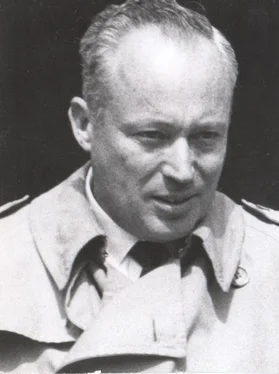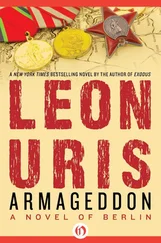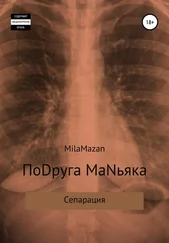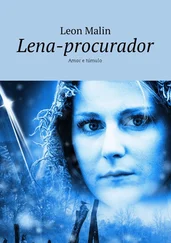“No one is going to argue, Andrei,” Alex said. “Here it is, straight and proper. You are forbidden to do what you plan.”
“Listen to him! The new Kommissar has issued a directive.”
“You are not going to take fifty of our best people. We need them desperately to keep other people alive.”
“Sing, Brother Brandel!”
“Through us and other Zionist groups the people have organizations prepared to function in their behalf. If you and a hundred others like you take fifty men and women away, you’re stripping three and a half million Jews of the only buffer they have to protect them.”
“Alex, try and stop me.”
“We have worked together for a long, long time, Andrei, but I will not hesitate to throw you out of the Bathyrans in disgrace.”
“Then you’ll have to throw out the other fifty, because they will follow me.”
They stopped suddenly, each building to a point of no return. There was anger in Andrei that defied logic. Alex was stunned. He turned to Gaby, who threw up her hands in helplessness.
“I prayed to God that my son Wolf would be half the man Andrei Androfski was. When I saw you crawl in on your hands and knees from battle I said, ‘This is the most gallant man who ever lived. No matter what happens in the days to come, we will pull through so long as Andrei is with us.’ Now ... I see you for what you are. A man without true courage.”
Gabriela threw herself between them, looking from one to the other in desperation, and suddenly it was Alex who received her wrath. “How dare you say that to him!”
Alex brushed by her and slapped Andrei across the face. He did not even blink.
“Stop it!” Gabriela cried.
“It’s all right, Gaby. He hits like a woman and he knows I will not strike him back.”
“But the Germans do not hit like women and you do not have the courage to take their blows and keep your hands at your side.”
Andrei walked across the room to the sofa. “I will not let it be said that I destroyed the Bathyrans. Keep them here. I will go alone. There are a hundred thousand Polish soldiers who escaped over the borders who will fight again. There will be one more.”
Alex hovered over him. “You are a selfish, vengeful man with only desire to fill this great thirst of yours for personal revenge. Forget the woman who loves you ... forget your sister and her children ... forget your friends ... forget the people to whom you’re obligated. When we need you the most, run off to join your roving band of Robin Hoods. Hail and farewell to the gallant Major Androfski of the Seventh Ulanys.”
“Stop tormenting him,” Gabriela cried.
“For God’s sake, Alex,” Andrei screamed. “I cannot fight your kind of war. I am not a traitor! I cannot fight your kind of war!”
“You have fought your war your way and it was no good. Now the battle is even more unbalanced. This is not strong men against strong men. We are a few people who have in our hands the responsibility of three and a half million helpless people. We have no weapons but faith in each other. Andrei, you’ve always wanted to know what Zionism is. This is Zionism, helping Jews survive. You must give yourself to us. We cannot do without you.”
Andrei sighed and grunted. “Jesus Christ,” he mumbled, “what kind of a battle is this?” He looked up at them. “In all those years I carried the pose of being the great Androfski—and I know why. Because we were fighting a hypothetical battle. Everyone was our enemy—yet, no one. We talked about a dream, we talked about our longings, but now ... I am no longer in a dubious battle. Can’t you understand I have seen the enemy face to face? I want to fight him with these,” he said, holding up his hamlike fists. “I want to smash in the faces of those German bastards.”
“Will that keep us alive?”
“I don’t know if I have the courage you speak of, Alex—to watch murder and not lift my hand.”
“Don’t leave us, Andrei.”
Gabriela knelt beside him and tried to comfort him.
“Alex is right,” she said. “You must stand by your people.”
“Didn’t you know, Gaby, Alex is always right—didn’t you know?”
Andrei looked from one to the other. Yes ... his war was over. In his war he had been trampled and humiliated. Now he must try to fight Alexander Brandel’s war.
“I will try,” he muttered at last. “I will try.”
Chapter Four
AS A MEMBER OF the executive board of the Jewish Civil Authority, Paul Bronski had several privileges and immunities. The ration for his family was equal to that of a Polish official, half again as much as the Jewish ration. Franz Koenig convinced Kommissar Schreiker that such generosity to the JCA would pay off.
Paul was able to secure a lovely apartment on Sienna Street, which was a mixed district of upper-middle-class professionals and long one of the fashionable streets in Warsaw. Bronski was not truly discomfited by the German occupation. His fortune was intact in Switzerland, beyond German reach, and he had quickly achieved the top status the new society allowed. So long as Chris stayed in Warsaw, it was an easy matter for him to advance Paul money which he was able to import on Swiss News accounts.
Nevertheless, moving day brought a terrible uneasiness in him. Deborah seemed delighted at the idea of leaving Zoliborz to move into a predominantly Jewish area. It was as though their forced identification as Jews gave her some sort of victory. While the boxes and crates were piled high, Paul closed himself in his study because he could not stand another question from the children.
On his desk were armbands his family had to wear from now on. The Germans were so damned thorough, he thought. Their directive called for the armband to be white in color with a blue Star of David no less than three centimeters in height. Paul laughed at the irony of it all and put the armband on, feeling that at least he cheated somewhat by losing the specified arm and having to wear the band on his left arm.
There was a knock on the door and Andrei entered.
“Well, hello, brother-in-law,” Bronski said. “Deborah is about the house somewhere, packing.”
“As a matter of fact, I came to see you, Paul.”
“To gloat over your victory? To tell me how foolish I look wearing a Star of David? To raise your finger and tell me how your ill-fated prediction came to pass—‘Bronski, you are a Jew whether you want to be or not’—or to ask if I gave the Germans a lesson on galloping Zionism, which I abhor, and tried to convince them I wasn’t really a Jew? Dammit all, the most difficult part of having one arm is trying to load and light a pipe—that and buttoning your fly.”
Andrei struck a match and held it over the bowl of Paul’s pipe while he drew in the fire.
“How do you feel, Paul?”
“Fine. I discovered I’m still a hell of a good doctor. Did you ever give directions to a corporal on how to amputate your arm by flashlight? Good trick if I say so myself. You look fine. Mere bullet wounds wouldn’t annoy you.”
“How are Deborah and the children taking this move?”
“Deborah? I think she’s delighted. The Lord is making divine retribution for the years I forced her to be an agnostic. I am going to brush up on my Hebrew, read the Torah nightly, and spend the rest of my life saying, ‘I shall be a good Jew,’ so help me Stawki Street.”
“I came here to ask you if you and I shouldn’t call a truce.”
Paul looked surprised. “You are a gallant winner, sir.”
“No, it’s just that times have grown so serious we don’t have the luxury of battling each other for a point already proven. You’re sitting in the JCA. You know just how bad things are.”
“Oh, no doubt they are bad. It is going to be a rough transition.”
Читать дальше












